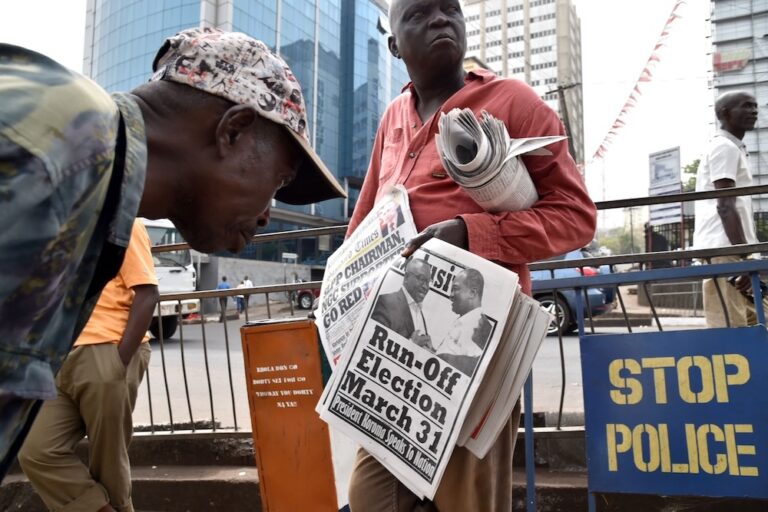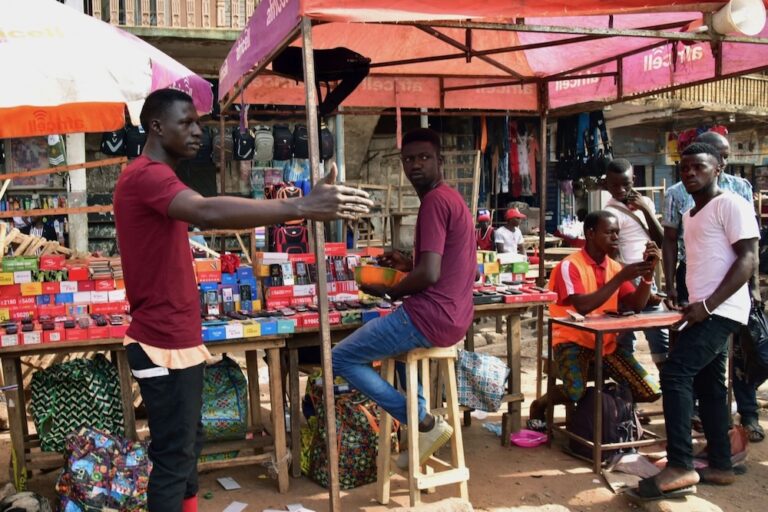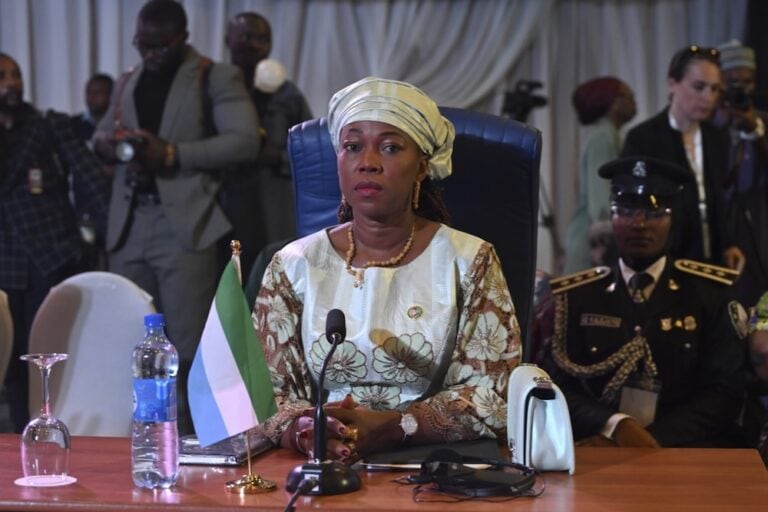(ARTICLE 19/IFEX) – The following is the full text of a statement released on 27 August 1998: **This alert contains information further to IFEX alert of 25 August 1998; for background information see IFEX alerts of 14 and 1 April 1998** ARTICLE 19, the International Centre Against Censorship, today expressed its disquiet about the conviction […]
(ARTICLE 19/IFEX) – The following is the full text of a statement released
on 27 August 1998:
**This alert contains information further to IFEX alert of 25 August 1998;
for background information see IFEX alerts of 14 and 1 April 1998**
ARTICLE 19, the International Centre Against Censorship, today expressed its
disquiet about the conviction for treason and sentencing to death of five
Sierra Leonean journalists on 25 August in Freetown (the date of the
sentencing was incorrectly reported as 24 August in IFEX alert of 25
August). They are amongst 59 civilians who are being tried for treason
following the restoration in February 1998 of the democratically-elected
government of President Tejan Kabbah.
Frances DâSouza, Executive Director of ARTICLE 19, said:
“Based upon what we know of the evidence presented during their trial and
the arguments presented in the judgesâ summing up, we are concerned that the
line between treason and collaboration with the former military regime may
have become blurred.”
Frances DâSouza added:
ARTICLE 19 fully supports the principle that perpetrators of human rights
abuses during the period of military rule between May 1997 and February 1998
should be brought to justice. But justice is best served when people are
brought to justice in connection with specific abuses rather than in the
context of a “blanket charge” such as treason.
In addition, justice requires that individuals are convicted only in the
absence of reasonable doubt. If it is to be sustained, the offence of
treason would seem to us to require active involvement in the overthrow of
the legitimate government of President Tejan Kabbah and the usurpation of
its executive powers at or near to the time of the overthrow in May 1997.
By this test, how strong is the case against these journalists? Furthermore,
the peaceful expression of opinions, however obnoxious they may be to many
people, should in no circumstances be construed as treason.”
She continued:
“There is no doubt that there have been genuine and concerted efforts by the
Sierra Leone authorities to ensure that the civilians charged with treason
receive a fair trial. We are also aware that the judicial process has yet to
run its full course. But this verdict has raised our fears that the five
journalists will not receive justice.”
Frances DâSouza concluded:
“We are also worried by the decision of the presiding judge to sentence the
five journalists to death. He had the discretion not to do so. The
complexity of cases such as this clearly demonstrates why the death penalty
can never be justified. There is no possibility of redress for any of those
convicted if, after their execution, an injustice is found to have
occurred.”
ARTICLE 19 campaigned actively on behalf of journalists under attack during
the period of military rule between May 1997 and February 1998. The
organisation undertook a mission to Sierra Leone in July 1998. On its
return, the organisation called upon the government and the international
community to endorse the establishment of a Truth Commission in order to
ascertain the true facts of the conflict and to assist efforts to find the
right balance between the twin requirements of justice and reconciliation.
The organisation also:
the deliberations of the Screening Committee regarding those held for
alleged collaboration without charge or trial since the overthrow of the
AFRC/RUF regime; and
leaders
currently being tried by court martial have a genuine right of appeal to a
higher court and that the court martial is held in public throughout its
course.


